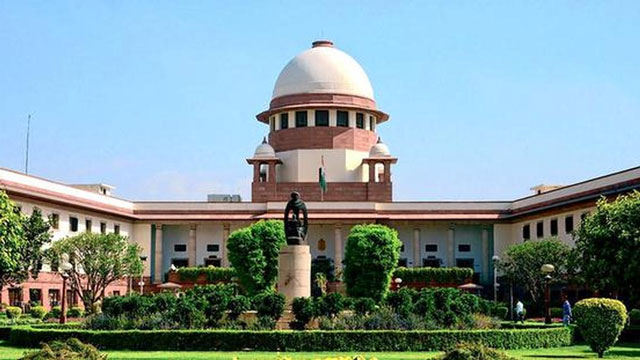Daijiworld Media Network – New Delhi
New Delhi, Nov 10: The Supreme Court on Monday described women as the “largest minority” in India and questioned why their representation in Parliament continues to decline despite constitutional provisions supporting equality.
“Why not give women representation even without reservation?” observed Justice B.V. Nagarathna, India’s only woman judge in the Supreme Court, while heading a Bench with Justice R. Mahadevan.

The court was hearing a petition filed by Dr. Jaya Thakur challenging the delayed implementation of the Nari Shakti Vandan Adhiniyam — the Constitution (106th Amendment) Act, which provides 33% reservation for women in the Lok Sabha and State Assemblies.
Senior advocate Shobha Gupta and advocate Varun Thakur, appearing for the petitioner, said the law, though approved by President Droupadi Murmu in September 2023, has not yet been implemented. “Why delay the ‘vandan’?” Ms. Gupta asked.
Justice Nagarathna noted that political justice for women stands on par with social and economic justice, adding, “Women form 48.44% of India’s total population. They are the largest minority in the country.”
She also cited Article 15(3) of the Constitution, which mandates the State to take affirmative steps to empower women. The court issued notice to the Union government through the Home and Law Ministries seeking a response.
As per the 2023 law, women’s reservation will come into effect only after the next census and subsequent delimitation of constituencies. The quota would remain in force for 15 years, subject to extension by Parliament.
The petition argued that withholding a constitutional amendment for an uncertain period was unjustified. “For 75 years, women have not received adequate representation in Parliament and State Legislatures. This has been a long-pending demand,” it said.
Justice Nagarathna questioned the Centre on the timeline for the next census. Ms. Gupta pointed out that no date had been announced, adding that several previous constitutional amendments — including the 73rd and 74th providing one-third reservation for women in local bodies — were implemented without awaiting census data.
The court said the census would scientifically determine how seats could be reserved for women but stressed that delay should not undermine the intent of the legislation.